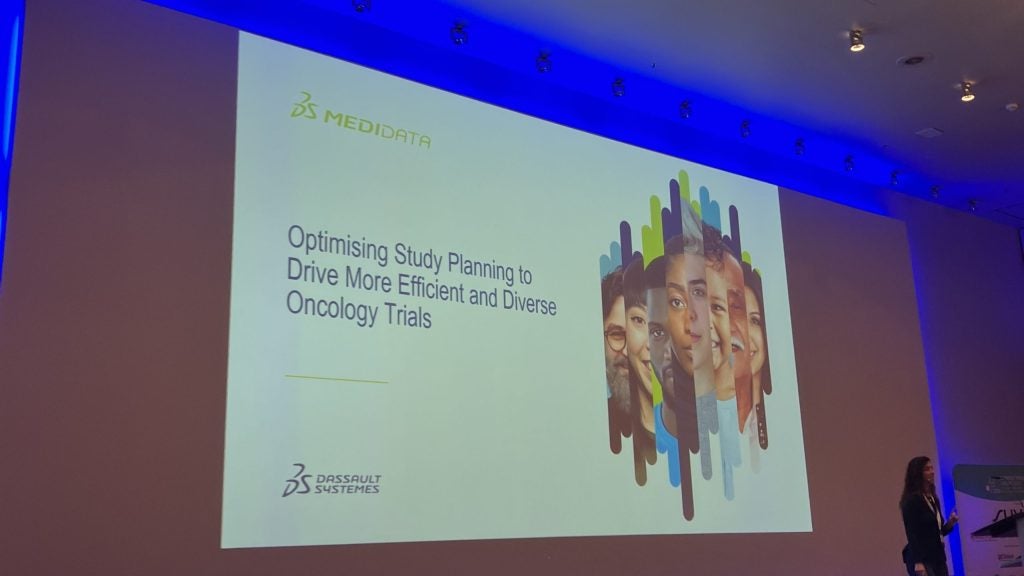Lacking diversity in clinical trials remains a challenge as 73% of global study participants are white, based on data presented as part of a talk hosted by Rachel Horovitz, vice-president at Medidata AI.
Horovitz spoke at a session of the CTO Europe 2023 conference in Munich, Germany, taking place 28 – 29 November. The session focused on the ways companies can optimise study planning for more diverse and efficient oncology trials.
Patient diversity varies significantly in different disease areas. Approximately 14.9% of enrolled participants were Black in 2,997 US-based clinical trials, based on Medidata AI’s analysis of 4,000 studies across the last decade. While 14.6% of the US population is of Black descent, its representation in specific disease areas is more variable, said Horovitz.
In oncology as a whole, Black patients make up about 8.5% of enrolled patient populations in the trials included in the analysis. What’s more, the representation of Black patients is even lower in conditions that disproportionately affect such populations. This includes both lung cancer, where roughly 8.1% of patients are of Black descent, and Alzheimer’s disease, where 5% of enrolled subjects are Black. Additionally, Black subjects are included in about 30% of lung cancer and Alzheimer’s disease trial-enrolling sites in the country.
Diverse representation in clinical trials can be harmed by factors such as the mistrust of the clinical research enterprise alongside other geographic and economic obstacles. According to Horovitz, some companies are also apprehensive about increasing diversity in their clinical trials due to worries that this would slow down patient recruitment. Overall, 50% of clinical trial sites fail to achieve their clinical trial enrolment targets, based on the presentation.
However, greater diversity in clinical trials is important since patients from different backgrounds can react differently to treatments, said Horovitz. In this sense, she noted that a more diverse patient pool would lead to more accurate results, adding that this is particularly the case in oncology. Similarly, clinical trials can also provide access to needed novel therapies in oncology, she said.
There is increasing pressure from US-based regulators to increase diversity in trials, said Horovitz. Since 2012, the US Food and Drug Administration (FDA) shared new guidance on race and diversity four times. Beyond this, the US Government will also soon start requiring the implementation of Diversity Action Plans in Phase III and pivotal clinical trials. Horovitz added that the FDA should share final guidance on what is required in such plans in the next few months.
With that in mind, data and new tools can be used to improve diversity in a company’s trial strategy. This includes selecting trials that have a track record of enrolling diverse patients and experience with decentralised clinical trial technology, noted Horovitz.









